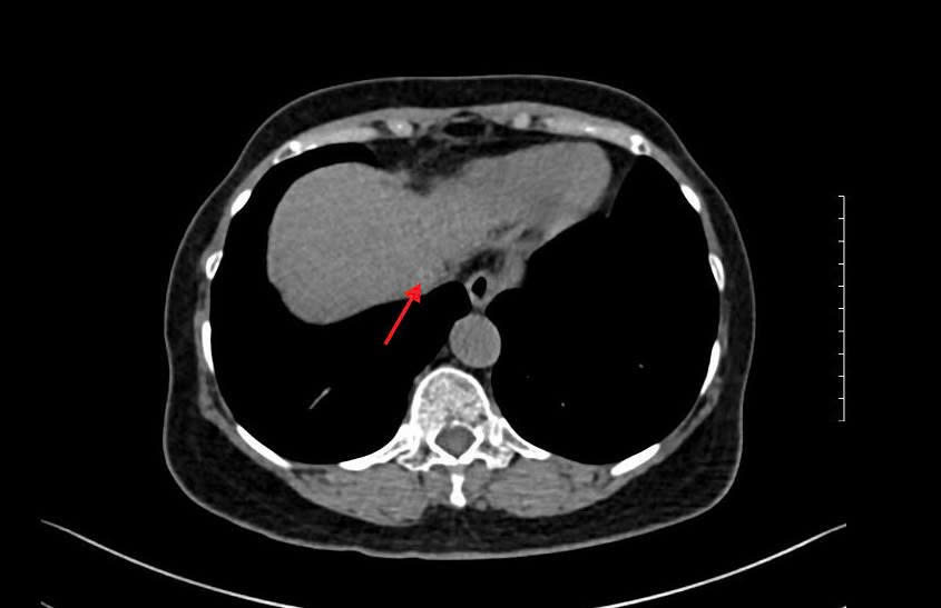Mrs. Binh's test results at Tam Anh General Hospital in Ho Chi Minh City revealed a high hepatitis C viral load (7 million viruses). A liver elastography showed stage F4 fibrosis, indicating cirrhosis due to years of silent liver cell damage. Her alpha-fetoprotein (AFP) level, a tumor marker, was 34.2 IU/ml, six times higher than normal. She had no prior history of liver disease.
Dr. Le Thanh Quynh Ngan, Head of the Gastroenterology Department, explained that a higher AFP level suggests a greater likelihood of liver cancer. To confirm the diagnosis, a CT scan was ordered, revealing a 0.5 cm tumor. The LI-RADS (Liver Imaging Reporting and Data System) score of 5 confirmed hepatocellular carcinoma. Chronic hepatitis C carries a high risk of progressing to cirrhosis and liver cancer. "Mrs. Binh's case is a typical example of undetected and untreated hepatitis C leading to cirrhosis and liver cancer," Dr. Ngan stated.
 |
MRI results showing Mrs. Binh's liver tumor. Photo: Tam Anh General Hospital |
MRI results showing Mrs. Binh's liver tumor. Photo: Tam Anh General Hospital
Doctors held a consultation and planned to ablate the tumor. However, due to its location, the procedure was deemed unfeasible. The team then performed transarterial chemoembolization (TACE) to cut off the tumor's blood supply.
A small incision was made to access the femoral artery. A catheter was then threaded through the artery to the liver tumor. A mixture of embolic agents and chemotherapy drugs was injected to block blood flow and destroy the tumor. After three TACE sessions, the tumor became inactive. Concurrently, Mrs. Binh received antiviral treatment.
Follow-up blood tests after 6 and 12 months showed no detectable hepatitis C virus. Her liver elastography improved to stage F3, indicating reduced fibrosis. Her overall health and appetite also improved.
 |
Dr. Quynh Ngan examining Mrs. Binh. Photo: Tam Anh General Hospital |
Dr. Quynh Ngan examining Mrs. Binh. Photo: Tam Anh General Hospital
Dr. Ngan advised regular check-ups to monitor for tumor recurrence. Mrs. Binh was also advised to limit carbonated drinks, fatty foods, grilled dishes, sticky rice, oily foods, fermented foods (pickles, salted vegetables, fish sauce), sour and spicy foods, and to avoid late-night meals and lying down immediately after eating. Regular exercise and adequate rest were also recommended.
Nearly one million people in Vietnam are estimated to have hepatitis C. Of those, only about 60,000 have been diagnosed, and very few receive treatment. Currently, there is no vaccine for hepatitis C.
To prevent hepatitis C, Dr. Ngan recommends using condoms during sexual intercourse and avoiding sharing needles. Individuals with hepatitis B, hepatitis C, or fatty liver disease should undergo regular monitoring and follow-up appointments. Regular health check-ups are crucial for early detection and timely management of liver abnormalities.
Bao Tram
*The patient's name has been changed.
| Readers can submit questions about digestive diseases here for doctors to answer. |












